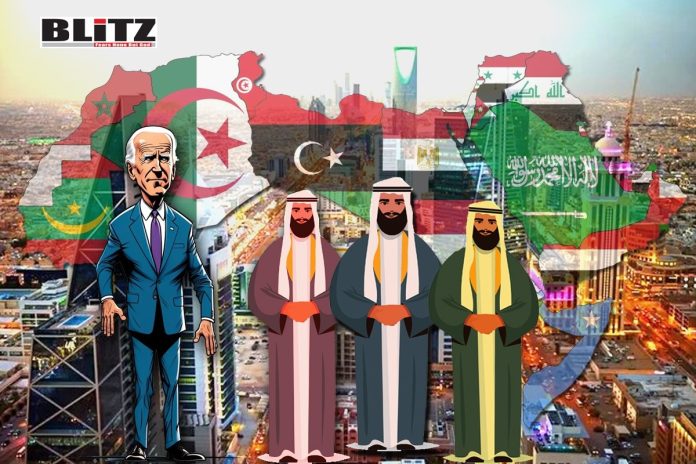In the boisterous landscape of global geopolitics, the Arab world stands at a pivotal juncture, charting a course that transcends the confines of unipolarity and embraces a new era of multipolarity and strategic autonomy. Shaped by a complex tapestry of historical legacies and contemporary dynamics, the Arab world’s trajectory reflects a resolute determination to assert its sovereignty and harness its vast potential on the global stage.
The seeds of this paradigm shift were sown amidst the turmoil unleashed by the Iraq war and the convulsions of the Arab Spring, events that served as catalysts for a reevaluation of the region’s geopolitical orientation. The erstwhile dominance of the United States and its Western allies in shaping Arab affairs has been eroded, giving way to a landscape characterized by multi-alignment and global multipolarity.
Central to this transformation is the Arab world’s embrace of strategic partnerships and initiatives that transcend traditional geopolitical boundaries. From membership in organizations such as BRICS to active participation in China’s Belt and Road Initiative (BRI) and India-Middle East-Europe Economic Corridor (IMEC), Arab nations are signaling a departure from ideological constraints and a pragmatic embrace of partnerships that serve their strategic interests.
The economic dimension looms large in this recalibration of Arab geopolitics, with trade and investment emerging as key drivers of regional integration and global connectivity. Trade volumes between Arab nations and BRICS members such as China and India have surged, underscoring the region’s pivotal role in shaping the contours of global economic growth and development.
Despite the challenges posed by regional instability and external pressures, the Arab world’s resilience and potential remain formidable. With a combined GDP surpassing US$8 trillion and vast reserves of natural resources, including oil and gas, the region boasts immense economic clout and demographic vitality. Strategic investments in infrastructure and human capital are poised to unleash a wave of economic growth and development that could reshape the global economic landscape.
Crucially, the Arab world’s vision for the future is anchored in a commitment to peaceful coexistence and regional stability. Rejecting the notion of their region as a theater for great power rivalry, Arab nations are championing dialogue and cooperation as the cornerstones of a new era of regional integration and prosperity.
Yet, this vision is not without its detractors, as some Western powers cling to outdated paradigms of hegemony and dominance. Calls to curtail Arab relations with emerging powers like China are met with skepticism and resistance, as Arab nations assert their right to pursue partnerships that serve their interests and aspirations.
In this evolving geopolitical landscape, the Arab world stands as a beacon of resilience and renewal, charting a course that transcends the constraints of unipolarity and embraces the promise of a new era of multipolarity and strategic autonomy. As the region harnesses its vast potential and navigates the complexities of global geopolitics, it is poised to shape the contours of the 21st-century world order in ways that reflect its rich history, vibrant culture, and enduring resilience.




